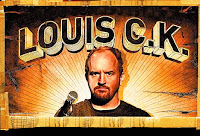 I'm a big proponent of virtual reality, especially when the audio is done well, and many have predicted that the technology will eventually be a boon to concerts. We're going to see soon enough as virtual reality concerts will actually begin to roll out this summer.
I'm a big proponent of virtual reality, especially when the audio is done well, and many have predicted that the technology will eventually be a boon to concerts. We're going to see soon enough as virtual reality concerts will actually begin to roll out this summer.NextVR, which has been a leader in VR broadcasting of sporting events, has teamed up with LiveNation to broadcast a series of concerts, although no artists have been named as of yet. There will be a limited number of VR music events this summer, with a full schedule planned for 2017.
The NextVR broadcast will be available via Samsung's Gear VR using the Oculus Home app, although they will also most likely be available on other VR platforms as well.
LiveNation/NextVR aren't the only companies jumping into the concert broadcast game. iHeartRadio and Universal Music Group previously announced that they would also broadcast VR concerts this year.
Virtual reality concerts hold great promise because it gives the viewer a feeling of actually being there and watching from the best seat in the house, which many feel may eventually eclipse attending an event. Paying $200 for a nosebleed seat might not be a suitable option when you can get a better view from your home while still feeling immersed in the event.
The same can be said for sporting events as well, as NextVR recently signed a 5 year deal with Fox Sports, although there may be more technical challenges in this niche than with music.
One thing's for sure, VR is taking beginning to take off, even though it still hasn't hit the general public yet, as more and more companies are jockeying for position.









